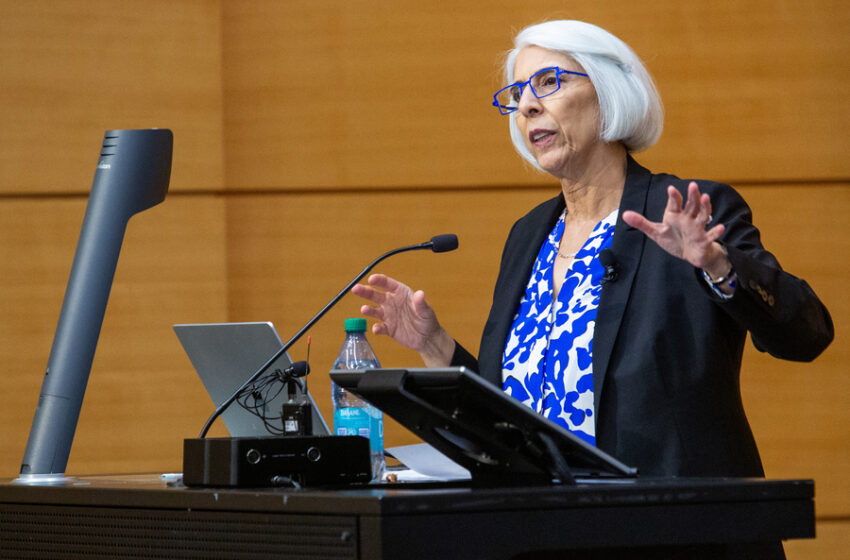US must sustain its global leadership in research: Arati Prabhakar

In a talk at MIT, Indian American scientist outlined challenges in medicine, climate, and AI
By Arun Kumar
White House science advisor Arati Prabhakar has emphasized the necessity for the US to sustain its global leadership in research across domains of science and technology, which she called “one of America’s long-time strengths.”
“Ever since the end of the Second World War, we said we’re going in on basic research, we’re going to build our universities’ capacity to do it, we have an unparalleled basic research capacity, and we should always have that,” the Indian American scientist said during a Nov 20 talk at MIT.
READ: Rajan Hooda finds out how ancient Egyptians built the pyramids (November 22nd, 2024)
“We have gotten better, I think, in recent years at commercializing technology from our basic research,” said Prabhakar who is the director of the Office of Science and Technology Policy (OSTP) and a co-chair of the President’s Council of Advisors on Science and Technology (PCAST). “Capital moves when you can see profit and growth,” she noted.
The Biden administration, she said, has invested in a variety of new ways for the public and private sector to work together to massively accelerate the movement of technology into the market.
Much of Prabhakar’s talk focused on three major issues in science and technology development: cancer prevention, climate change, and AI, according to MIT News. The talk drew a capacity audience of nearly 300 people in MIT’s Wong Auditorium and was hosted by the Manufacturing@MIT Working Group.
Among other remarks about medicine, Prabhakar touted the Biden administration’s “Cancer Moonshot” program, which aims to cut the cancer death rate in half over the next 25 years through multiple approaches, from better health care provision and cancer detection to limiting public exposure to carcinogens. We should be striving, Prabhakar said, for “a future in which people take good health for granted and can get on with their lives.”
On AI, she heralded both the promise and concerns about technology, saying, “I think it’s time for active steps to get on a path to where it actually allows people to do more and earn more.”
When it comes to climate change, Prabhakar said, “We all understand that the climate is going to change. But it’s in our hands how severe those changes get. And it’s possible that we can build a better future.” She noted the bipartisan infrastructure bill signed into law in 2021 and the Biden administration’s Inflation Reduction Act as important steps forward in this fight.
“Together those are making the single biggest investment anyone anywhere on the planet has ever made in the clean energy transition,” she said. “I used to feel hopeless about our ability to do that, and it gives me tremendous hope.”
Prabhakar said that her White House work had been guided, in part, by one of the overarching themes that President Biden has often reinforced. “He thinks about America as a nation that can be described in a single word, and that word is ‘possibilities,’” she said. “And that idea, that is such a big idea, it lights me up. I think of what we do in the world of science and technology and innovation as really part and parcel of creating those possibilities.”
Ultimately, Prabhakar said, at all times and all points in American history, scientists and technologists must continue “to prove once more that when people come together and do this work … we do it in a way that builds opportunity and expands opportunity for everyone in our country. I think this is the great privilege we all have in the work we do, and it’s also our responsibility.”
Prabhakar has extensive experience in both government and the private sector. She has been OSTP director and co-chair of PCAST since October of 2022. She served as director of the Defense Advanced Research Projects Agency (DARPA) from 2012 to 2017 and director of the National Institute of Standards and Technology (NIST) from 1993 to 1997.
She has also held executive positions at Raychem and Interval Research, and spent a decade at the investment firm US Venture Partners. An engineer by training, Prabhakar earned a BS in electrical engineering from Texas Tech University in 1979, an MA in electrical engineering from Caltech in 1980, and a PhD in applied physics from Caltech in 1984.

